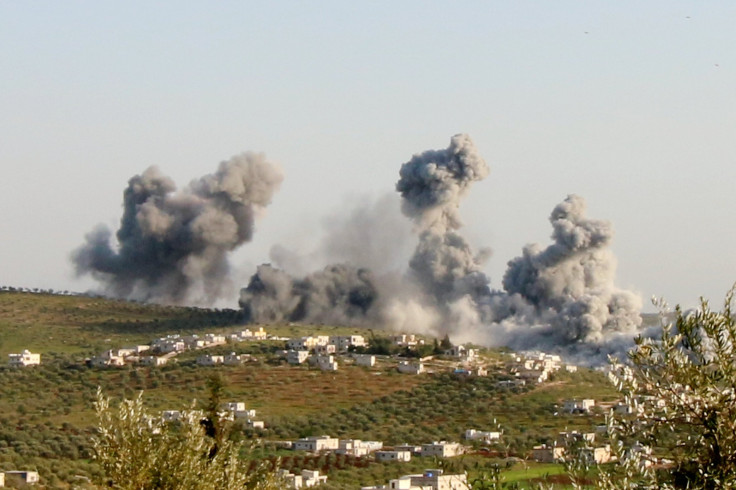Middle East News: US, Russia Trade Jabs Over Syria's Idlib

As bombing continues in Syria's northern Idlib province, U.S. President Donald Trump and the Russian government have been at odds over the offensive.
On Sunday, Trump urged Russia and Iran to stop their assault on the province. "Hearing word that Russia, Syria, and to a lesser extent, Iran are bombing the hell out of Idlib province in Syria, and indiscriminately killing many innocent civilians. The world is watching this butchery. What is the purpose, what will it get you? Stop!," Trump tweeted.
On Monday, the Russian government shot back at Trump's statements, Reuters reported. Kremlin spokesperson Dimitry Peskov called Russia's offensive "justified" and said that it was "unacceptable" for militants to use Idlib as a base to launch attacks.
Last week, the Russian government said it was ultimately Turkey's responsibility to keep rebels from firing at civilian or Russian targets.
Human Rights Watch (HRW) has criticized the Russian and Syrian government's offensive on Idlib and has alleged that internationally banned weapons are being used in the assault. "The Syrian-Russian military alliance is using a cocktail of internationally banned and indiscriminate weapons on a trapped civilian population," Lama Fakih, the acting Middle East director at HRW said.
HRW claims that the Syrian government has used crudely made barrel bombs and Uragan cluster munition rockets on civilians indiscriminately. Cluster munitions have been banned by 105 countries in accordance with the 2008 Convention on Cluster Munitions treaty.
"Russia has abused its position at the UN Security Council to protect itself and its ally, Damascus, and to continue these abuses against civilians," Fakih added.
Located in northwestern Syria, Idlib is one of the last rebel-held areas of Syria that the Syrian government has not taken back from the rebels. The Syrian civil war began in March 2011, as rebel groups opposed to the government of Syrian President Bashar al-Assad initiated an uprising. The revolution against al-Assad was part of a greater trend of uprisings in Arab countries such as Tunisia, Egypt and Bahrain that year, and became known as the Arab Spring.
Although the international community has launched numerous attempts to negotiate a peaceful end to the conflict, the war has continued, with hundreds of thousands of Syrians killed and millions displaced over the years.
© Copyright IBTimes 2025. All rights reserved.





















